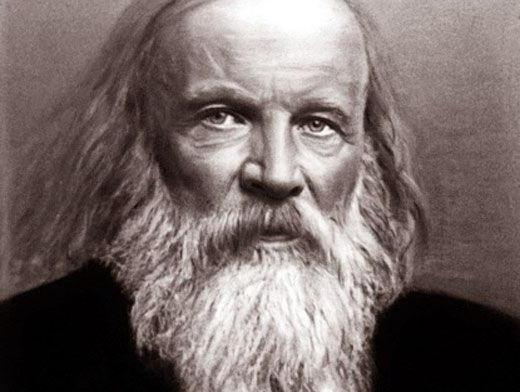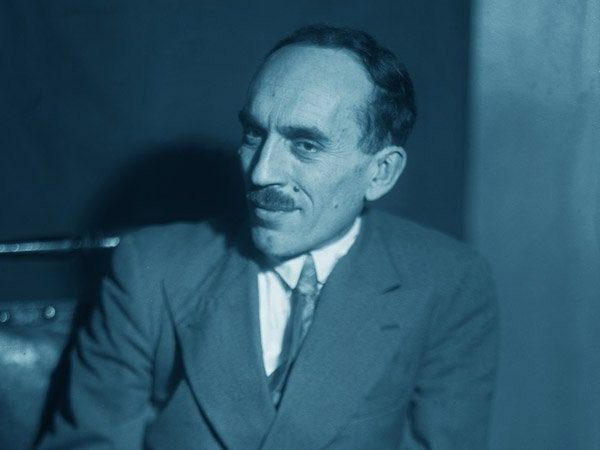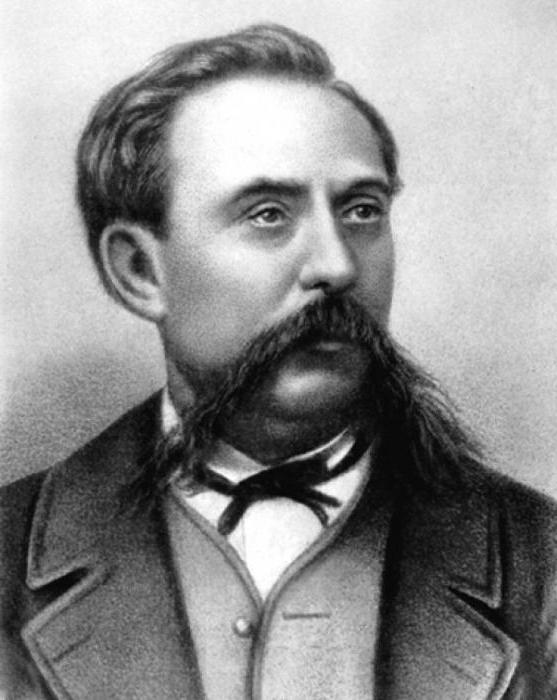Biography of Alessandro Volta
Date of birth: February 18, 1745 Place of birth: Como, Italy Date of death: March 5, 1827 Place of death: Como, Italy Alessandro Volta aka Alessandro Giuseppe Antonio Anastasio Geralamo Umberto Volta is an Italian physicist. Alessandro Volta was born on February 18, 1745 in Italy into the family of a priest. He was the fourth child in the family, but his mother was an illegitimate wife, so for the first year he was raised by a wet nurse, and then returned to the family and spoke only at the age of 7. In 1752, his father died and Alessandro was given to his uncle to be raised. The uncle began to teach his nephew Latin, history, mathematics and etiquette. Alessandro eagerly studied all sciences and strove to learn as much as possible, he was inquisitive, which hardly cost him his life. While studying the shine in the water, he almost drowned. Volta
Biography of Blaise Pascal
Date of Birth: June 19, 1623 Place of Birth: Clermont-Ferrand, France Date of Death: August 19, 1662 Place of Death: Paris, France Blaise Pascal was a French physicist. Blaise Pascal was born on June 19, 1623 in the French town of Clermont-Ferrand. His father was an employee in the tax department and soon became chairman. Pascal had a younger and older sister, and when he was 3 years old, his mother died. In 1631, father and children moved to Paris. Pascal received home education- He was taught by his father. As a child, he showed a talent for studying mathematics, and even discovered the curve in algebra, which later received his name. Blaise was also a member of the commission responsible for determining longitude created by Richelieu. Pascal's father believed that mathematics should only be studied from the age of 15, and before that he
Biography of Karl Marx
Date of birth: May 5, 1818 Place of birth: Trier, Germany Date of death: March 14, 1883 Place of death: London, Great Britain Karl Heinrich Marx was a German philosopher, founder of the movement of Marxism. Karl Marx was born on May 5, 1818 in the Prussian town of Trier. His family was Jewish, but in order not to lose his job and position, his father was baptized himself in 1824 and baptized Charles in the Evangelical Church. In 1830-1835 he studied at the local gymnasium. In 1835, Karl began studying law at the University of Bonn. While studying at the university, he married the baron's daughter. Also during his years of study, he became interested in the romanticism and socialism of Saint-Simon. After some time, at the request of his father, he left the University of Bonn and moved to the more reputable University of Berlin, where he spent the next 4 years. In more
Biography of Georg de Hevesy
Date of Birth: August 1, 1885 Place of Birth: Budapest, Hungary Date of Death: July 5, 1966 Place of Death: Freiburg, Germany Georg Charles de Hevesy was a Hungarian chemist. Gyorgy de Hevesy was born on August 1, 1885 in Budapest into the family of a judicial worker among 8 children. His father, in addition to working in court, and he was the chairman there, ran a mining company and was quite rich. In 1903, Gyorgy completed his studies at the local school of the Piarist order, where he especially showed a talent for mathematics and physics. In 1904 he began studying at the University of Budapest, but changed his mind and a year later became a student at the Berlin University University of Technology, devoting himself to chemistry. Due to the warm and humid climate suffered from pneumonia and was forced to transfer to the University of Freiburg to
Biography of Benedict Spinoza
Date of Birth: November 24, 1632 Place of Birth: Amsterdam, Netherlands Date of Death: February 21, 1677 Place of Death: The Hague, Netherlands Benedict Spinoza was a Dutch philosopher. Baruch de Spinoza was born on November 24, 1632 in Amsterdam into a Jewish family and had 1 older brother and 3 sisters. In 1638, his mother died, and his father began trading fruit. Baruch was educated at home, then attended the Etz Chaim religious school where he studied Hebrew, Torah and Talmud. Also at school, he began to study the works of Aristotle and rhetoric, and a little later he studied Latin. Besides native language spoke Portuguese, Spanish, French and Italian. Spinoza also studied the works of Jewish rabbis and Arab philosophers: Avicenna, Gersonides and Herrera. Baruch's father died, after which his administration
Biography of Niels Bohr
Date of Birth: October 7, 1885 Place of Birth: Copenhagen, Denmark Date of Death: November 18, 1962 Place of Death: Copenhagen, Denmark Niels Henrik David Bohr is a Danish physicist. Niels Bohr was born on October 7, 1885 in Copenhagen. His father was also a physicist and was twice nominated for Nobel Prize. Already at school, Nils became interested in physics, mathematics and philosophy, as well as football, where he played as a goalkeeper for the Akademisk club along with his brother. In 1903, Bohr began studying at the University of Copenhagen, studying physics, chemistry, astronomy and mathematics. Again, with my brother, I created a circle among students to study philosophy. In 1906, he conducted a study to determine surface tension water using stream vibrations, for which he was awarded Golden medal from
Biography of Friedrich Nietzsche
Date of Birth: October 15, 1844 Place of Birth: Recken, Germany Date of Death: August 25, 1900 Place of Death: Weimar, Germany Friedrich Wilhelm Nietzsche was a German philosopher. Friedrich Nietzsche was born on October 15, 1844 in the Saxon village of Recken into the family of a priest. It received its name in honor of the reigning king. In 1849, his father died, so Friedrich was given to be raised in Naumburg an der Saale by his mother, who lived with her mother, sisters and youngest daughter. Soon Nietzsche began studying at the Pfort boarding school. In 1862 he entered the University of Bonn to study, and then graduated from Leipzig. At universities he studied the philosophy of Greece and Rome. I accidentally became acquainted with the work of Schopenhauer, who influenced him strong influence. In 1869, Nietzsche was invited to
Biography of Peter Kapitsa
Date of birth: July 8, 1894 Place of birth: Kronstadt, Russian Empire Date of death: April 8, 1984 Place of death: Moscow, Russia Pyotr Leonidovich Kapitsa - Soviet physicist. Pyotr Kapitsa was born on July 8, 1894 in Kronstadt in the family of a lieutenant general and a teacher. In 1905 he began studying at the gymnasium, but in 1906, due to problems with studying Latin, he began studying at the Kronstadt Real School. From 1914 to 1918 he studied at the St. Petersburg Polytechnic Institute, where he received his education as an electrical engineer. From 1918 to 1921 he worked as a teacher and his talent was noticed by the physicist Ioffe, who invited Peter to collaborate in his studies atomic physics. So, together with Ioffe and another physicist, his classmate Semenov, Kapitsa invented a method by which
Biography of Leonhard Euler
Date of birth: April 15, 1707 Place of birth: Basel, Switzerland Date of death: September 18, 1783 Place of death: St. Petersburg, Russian Empire Leonard Euler was a German and Russian mathematician and physicist. Leonhard Euler was born on April 15, 1708 in Switzerland into the family of a pastor. His father studied mathematics with Bernoulli, so he was able to give his son the basics of education. In 1720-1724, Euler studied at the University of Basel. In 1726, he was invited to the Academy of Sciences in St. Petersburg, and a year later Euler worked for the benefit of Russian science, studying mathematics and mechanics. He stayed in St. Petersburg for 14 years and during this time he managed to write about 80 works, 50 of which were published. To communicate with colleagues, he had to learn Russian. In St. Petersburg, Euler was a teacher and conducted examinations
Biography of Gottfried Leibniz
Date of Birth: July 1, 1646 Place of Birth: Leipzig, Germany Date of Death: November 14, 1716 Place of Death: Hanover, Germany Gottfried Wilhelm Leibniz - German mathematician. Gottfried Wilhelm Leibniz was born on July 1, 1646 in Leipzig into the family of a philosophy professor. At the age of 6, his father died. At the age of 15, Leibnz began studying at the University of Leipzig, and in 1663 he completed his studies there and became a bachelor, writing a dissertation on the topic of individuation. From 1663 to 1666 he studied at the University of Jennes at Faculty of Law, during his studies he published his first work on the education of lawyers. This work was appreciated by the Baron and Archbishop of Boineburg, who took Leibniz to work for him. So that he would deal with issues of resolving peace in the Roman Empire and between neighbors
Biography of Ernest Rutherford
Date of birth: August 30, 1871 Place of birth: Nelson, New Zealand Date of Death: October 19, 1937 Place of Death: Cambridge, England Ernest Rutherford - English physicist. Ernest Rutherford was born on August 30, 1871 in the New Zealand city of Nelson in the family of a worker and a teacher. Had 11 sisters and brothers. He graduated from primary and secondary school, and then received a scholarship to study at Nelson College, which was a private high school. In college he began to show his first talents in mathematics, for which he received an award to study at Canterbury College in Christchurch. At this college he became interested in physics and chemistry, and in 1892 he graduated from college with a bachelor's degree. humanities, but also whole year studied mathematics and became a Master of Arts, but with
Biography of Georg Hegel
Date of Birth: August 27, 1770 Place of Birth: Stuttgart, Germany Date of Death: November 14, 1831 Place of Death: Berlin, Germany Georg Wilhelm Friedrich Hegel was a German philosopher. Georg Hegel was born on August 27, 1770 in Stuttgart into the family of a treasury secretary. Received home education. In 1788 he finished his studies at the gymnasium and entered the University of Tübingen, where he studied theology and graduated in 1793. In addition to theology, he studied philosophy and became a Master of Science. At the same academy, 5 years younger, Schelling and Hölderlin studied, with whom Hegel became friends. Special attention Hegel contributed to the work of Kant and Schiller. From 1793 to 1796 he worked as a home teacher in Bern, and from 1797 to 1800 in Frankfurt am Main. In parallel with work, I studied theology,
Biography of Mstislav Keldysh
Date of birth: February 10, 1911 Place of birth: Riga, Latvia Date of death: June 24, 1978 Place of death: Moscow, Russia Mstislav Vsevolodovich Keldysh - Soviet mathematician. Mstislav Keldysh was born on February 10, 1911 in Riga. Mstislav's father worked as an engineer, and his mother was a housewife, both were nobles and taught their children a love of music and art, and also taught them French and German languages. In 1915, the Keldyshes left for Moscow, and from 1919 to 1923 Mstislav was in Ivanovo. In 1923, he entered a construction school, where he practiced on construction sites. Already in the 7th grade he showed himself in the exact sciences and loved mathematics. In 1927, having completed his studies at school, Mstislav wished to study at the Institute of Civil Engineering, but due to his 16 years of age
Biography of Jean Baptiste Dumas
Date of Birth: July 14, 1800 Place of Birth: Ales, France Date of Death: April 10, 1884 Place of Death: Cannes, France Jean Baptiste Andre Dumas - French chemist. Jean Baptiste Dumas was born on July 14, 1800 in Ales. In his youth, he learned the art of pharmacy, and in 1816 he went to Geneva to work as an assistant pharmacist in a pharmacy with its own laboratory. He completed his studies at the University of Geneva, where he studied chemistry and physiology. In 1823 he went to Paris, where he began working with Humboldt. At the same time, he worked as a preparator for Polytechnic school and was a chemistry teacher at the local lyceum. From 1832 to 1868 he worked at the Sorbonne, after replacing Gay-Lussac in his post. In 1835 he became a professor of science and worked at the Polytechnic School. In parallel with this
Biography of Richard Feynman
Date of birth: May 11, 1918 Place of birth: New York, USA Date of death: February 15, 1988 Place of death: Los Angeles, USA Richard Phillips Feynman - American physicist. Richard Phillips Feynman was born on May 11, 1918 in New York City into the family of a factory worker. Had a younger sister. His father was the head of the sales department at a factory that sewed uniforms for the army and was fond of natural science and even had his own mini-laboratory in chemistry. Richard was already interested in chemistry and physics as a child; at school he repaired radios and thereby earned his pocket money. Feynman also had a talent for mathematics - he solved quickly, in his head, counted and solved problems as a whole, without breaking them into stages. In 1935, he graduated from school and began studying at the Massachusetts Institute of Technology
Biography of Karl Anderson
Date of birth: January 3, 1905 Place of birth: New York, USA Date of death: January 11, 1991 Place of death: California, USA Carl David Anderson is an American physicist. Carl David Anderson was born on January 3, 1905 in New York. Soon his family left for California, where Anderson completed his studies at the University in 1924. high school Los Angeles. After this, he began studying at the Californian Institute of Technology in Pasadena, and in 1927 he received a bachelor's degree in physics and engineering. After that, he began working as a graduate student and writing related work. In 1930 he became a Doctor of Science and defended his dissertation on the distribution of electrons in space, which are knocked out with the help of x-rays in gas space. Anderson soon became research fellow and studied
Biography of Albert Camus
Date of Birth: November 7, 1913 Place of Birth: Mondovi, Algeria Date of Death: January 4, 1960 Place of Death: Villebleven, France Albert Camus- French writer. Albert Camus was born on November 7, 1913 in the Algerian town of Mondovi. His father was a worker, and his mother did not work and was semi-literate. Albert's father died during the First World War, where he was barely less than a year, after which the mother had a stroke and for the rest of her life she hardly spoke. The family moved to Albert’s grandmother, and his mother worked as a maid to support herself. From 1918 to 1923 he studied at primary school, graduated with honors and began studying at the lyceum with scholarships. This was facilitated by the boy’s teacher at the elementary school, Germain, who saw an extraordinary talent in him and persuaded his parents to send him to study further. IN
Biography of Pavel Cherenkov
Date of birth: July 28, 1904 Place of birth: Voronezh, Russia Date of death: January 6, 1990 Place of death: Moscow, Russia Pavel Alekseevich Cherenkov is a Russian physicist. Pavel Cherenkov was born on July 28, 1904 in a village near Voronezh in peasant family. In 1928 he completed his studies at Voronezh University, where he studied physics and mathematics. From 1928 to 1930 he worked as a teacher, after which he entered graduate school at the Institute of Physics and Mathematics at the Academy of Sciences in Leningrad. In 1935 he became a candidate of science and worked as a researcher at the Moscow Physical Institute named after Lebedev. In 1932, together with Vavilov, his scientific advisor and academician, he began studying the light that appears when solutions absorb radiation. Cherenkov proved that
Biography of Nikolai Lossky
Date of birth: December 6, 1870 Place of birth: Vitebsk province, Russian Empire Date of death: January 24, 1965 Place of death: Paris, France Nikolai Onufrievich Lossky is a Russian philosopher. Nikolai Lossky was born on November 24, 1870 in the Vitebsk province. His father was a forester, and his mother was a Catholic. In 1872 the family moved to Dagda. In 1881, Nikolai began studying at the Vitebsk classical gymnasium, but studied there for only 6 years, after which he was expelled for being an atheist and promoting the teachings of socialism. Then he studied at the University of Bern and studied philosophy. Due to lack of money, the university had to leave for some time and go to Algeria, where Lossky began to serve in the French foreign legion. In 1889 he returned to St. Petersburg and graduated
Biography of Pierre Gassendi
Date of birth: January 22, 1592 Place of birth: Provence, France Date of death: October 24, 1655 Place of death: Paris, France Pierre Gassendi - French scientist and philosopher. Pierre Gassendi was born on January 22, 1592 in Provence. Already in his youth he began to be interested in mathematics and philosophy. He graduated from the local college and university in Aix-en-Provence. In 1612 he became a teacher of theology, and 5 years later he became the head of the philosophy department there. As a teacher, he denied the teachings of Aristotle, studied astronomy and did not tolerate being called an astrologer. In 1624, his first publications were published - essays with the title Paradoxical Exercises against the Aristotelians, in which he mentioned that although he taught the basics of Aristotle's theory, he fundamentally disagreed with it. Since these loud statements
Biography of Nicolaus Copernicus
Date of Birth: February 19, 1473 Date of Death: May 24, 1543 Place of Birth: Torun, Poland Nicolaus Copernicus - great mathematician, Copernicus is a famous astronomer and economist. The date February 19, 1473 is significant because Nicolaus Copernicus was born in the city of Torun (Poland). Nicholas's father was a merchant, but he died of the plague when his son was barely ten years old. After his father died, the boy was taken in by Nikolai's mother's brother, Lukasz Wachenrode, a bishop. In 1491, Nicholas and his brother entered the University of Krakow. After graduating, Copernicus went on a trip to Italy. There he entered the University of Bologna. There he studied astronomy, which he fell in love with while studying in Krakow. In 1500, Nicolaus Copernicus left the university and went to Rome. It is the same as in the case of Krakowski
Biography of Thomas Young
Date of Birth: 13 June 1773 Date of Death: 10 May 1829 Place of Birth: Milverton, Somerset. Thomas Young - physicist, astronomer, Thomas Young famous doctor. Thomas Young was born on June 13, 1773 in Milverton, Somerset. He was the eldest of the children of a merchant family. Thomas had nine siblings. The family belonged to a religious sect. He was a very gifted child and at two years old he could already read fluently. Possessing a phenomenal memory at four years old, he could already reproduce works English authors, as well as poems on Latin, although at that time I still didn’t understand Latin. While studying at school, he was the best and most capable student. By the age of fourteen, Thomas Jung already knew about ten languages. Of course, his parents sent him to different educational establishments, but Jung
Biography of Henri Moissan
Date of birth: September 28, 1852 Date of death: February 20, 1907 Place of birth: Paris, France Henri Moissan - famous chemist, Ferdinand Frederic Henri Moissan, winner of numerous awards. Ferdinand Frederic Henri Moissan was born on September 28, 1852 in Paris. The mother of the future great chemist was a dressmaker, his father a railway employee. When the time came, the boy was sent to a gymnasium, where he was very lucky with the teachers. One of them, studied with Moissan in Extra time and completely free. The boy became very interested in chemistry and studied it without paying attention to other subjects. Because of this, after graduating from high school, he failed to enter the university. He worked as a pharmacist's assistant for two years, then worked at the Edman Fremy Museum of Chemistry. In 1874
Biography of Wilhelm Ostwald
Date of birth: September 2, 1853 Date of death: April 4, 1932 Place of birth: Riga, Latvia Wilhelm Friedrich Ostwald - physicist and chemist, V.F. Ostwald is a philosopher. Ostwald was born in Latvia (Riga) in 1853 on September 2. His father Gottfried Ostwald was a bonadar, his mother Elisabeth Ostwald. Friedrich was the second child in the family. While studying at the gymnasium, Ostwald showed himself to be a diligent student and a versatile personality. He studied physics, chemistry, and drawing. His hobbies also included music; he played the piano and viola quite well. Friedrich's father advised him to take up engineering, but the son decided in his own way. He entered chemical faculty university. In 1875, Friedrich Wilhelm Ostwald graduated from the university in Tartu (modern Estonia). He received his degree
Biography of Max Born
Date of birth: December 11, 1882 Date of death: January 5, 1970 Place of birth: Breslau Max Born - famous physicist, Max Born is a great mathematician. In 1882, on December 11, Max Born was born in Breslau (Prussia). His father was a famous embryologist. On his father’s side, Max’s ancestors’ surname used to be Bettermilch, but they decided to change it to a more inconspicuous one. The boy's mother was the daughter of the famous entrepreneur Kaufman. The Kaufman family loved music very much and Liszt and Brahms were frequent guests at home. His mother died early from urolithiasis, and the upbringing of Max and his sister was entrusted to the governess. After some time, the father married for the second time and the services of a governess were no longer needed. There was no closeness and trust between the father's wife and children, but a friendly atmosphere reigned in the family.
Biography of Nikolai Vavilov
Date of birth: November 25, 1887 Date of death: January 26, 1943 Place of birth: Moscow, Russia Nikolai Ivanovich Vavilov - scientist, geneticist. Vavilov I.V. - biologist. Now, in our time, the name and work of Academician Nikolai Ivanovich Vavilov does not give any reason to doubt about his talented discoveries, but once upon a time his mere mention in a positive sense could best case scenario lead to disgrace, and at worst - to to the highest degree punishments. His whole life was like the rise of a unique talent and a rapid and undeserved fall. The year 1906 is notable for the fact that Nikolai Ivanovich graduated from the Moscow Commercial School, but realized that this profession, which, by the way, was his family one, was not his. Therefore, he entered the Moscow Agricultural Institute, his teachers were such famous
Biography of George Agricola
Date of birth: March 24, 1494 Date of death: November 21, 1555 Place of birth: Chemnitz George Agricola - great scientist, mineralogist. George Agricola (his real name was Georg Paver) was born in 1494 on March 24 in Glauchau. He is objectively considered the father of mineralogy. George's father was a tailor; there were seven children in the family, George being the second child. He studied at the University of Leipzig, first studying philology, then medicine. He worked as a school rector, then as a doctor. While living in Chemnitz he devoted himself to mining. He married a widow, thanks to her shares, he became a co-owner of the mine and began to devote all his time to mineralogy. For Germany, Agricola became the first mineralogist. Agricola dedicated one of his works to glass production. He criticized the goals and actions of alchemists. Agricola
Biography of Alfred Adler
Date of birth: February 7, 1870 Date of death: May 28, 1937 Place of birth: suburb of Vienna, Austria Alfred Adler - psychologist, Alfred Adler - creator individual psychology. Alfred Adler was born in 1870 on February 7 on the outskirts of Vienna. He was born into a poor Jewish family and was the third child. In total there were six children in this family. Alfred was a physically weak child and several times he was close to death. The boy was almost killed a couple of times in street incidents, and at the age of five Alfred suffered a serious case of pneumonia. The family doctor who treated the boy was sure that the child would not survive. Another doctor put the child on his feet. After this, the impressionable boy decided to become a doctor. And at the age of eighteen, Alfred entered the university to study medicine.
Biography of Adam Smith
Date of Birth: June 5, 1723 Date of Death: July 17, 1790 Place of Birth: Kirkcaldy, Scotland. Adam Smith - economist, Adam Smith - the founder of classical political economy. Born in a Scottish town on June 5, 1723. The boy's father died before his birth, never seeing his son. It was thanks to his mother that Adam Smith received good upbringing. At the age of fourteen, the boy became interested in studying mathematics and philosophy (at the university). At that time, universities could afford to send their students to study abroad, which is how Adam Smith ended up in England at Oxford. But he did not like studying there, the level of education did not suit him, and Adam Smith considered the years spent in England to be the most unhappy in his life. He never graduated from the university, so he was left without a diploma.
Biography of Alexander Fleming
Date of birth: August 6, 1881 Date of death: March 11, 1955 Place of birth: Scotland, Ayrshire Alexander Fleming is a famous bacteriologist. On August 6, 1881, the future bacteriologist Alexander Fleming was born. The boy spent his childhood in Ayrshire, Scotland. For Alexander’s father, who married for the second time at the age of 59, this was his second marriage and seventh child. The father died early and the mother was left alone with the children. Alexander went to school, and at thirteen he went to London, as his older brothers did. He first worked as a clerk and later joined a Scottish regiment. He liked military life, but he was not destined to serve abroad; the war was already over. Fleming's older brother was already working as an ophthalmologist, and following his example, Alexander submitted documents to
Date of birth: November 19, 1711 Date of death: April 15, 1765 Place of birth: Mishaninskaya village, Arkhangelsk province, Russian Empire Mikhail Lomonosov is a Russian scientist and naturalist. Mikhail Vasilievich Lomonosov is known not only as a scientist, but as a writer and poet. The brilliant scientist saw the light of day in 1711 in one of the Russian villages, in prosperous family. Parents were engaged in fishing and trading. Carefree childhood the boy spent going to sea with his father, mastering literacy, reading various literature. However, his cloudless childhood soon ended with the death of his mother. His father’s second wife treated Mikhail rather coldly. When the father decided to forcefully marry his son, the future genius had to feign illness to avoid this. Turning point in life
Biography of Nikolai Lobachevsky
Date of birth: December 1, 1792 Date of death: February 24, 1856 Place of birth: Nizhny Novgorod, Russia N.I. Lobachevsky is a famous Russian mathematician. Nikolai Ivanovich Lobachevsky is also known for his work on non-Euclidean geometry. In 1792 in Nizhny Novgorod future was born famous mathematician Lobachevsky. His father was a surveyor and served in the department. Nikolai’s mother did not work anywhere and raised three children. In 1802, Lobachevsky was sent to a gymnasium. The boy mastered many subjects well. Here he studied for four years. After graduation, Nikolai tried to enter the university, but could not, because he failed entrance exams. But on the second attempt, Lobachevsky managed to pass the exams and become a student. At first, Nikolai studied medicine, but then decided
Biography of Andrei Sakharov
Date of birth: May 21, 1921 Date of death: December 14, 1989 Place of birth: Moscow, Russia Andrei Sakharov - creator hydrogen weapons. Andrei Dmitrievich Sakharov is also known as a human rights activist, political figure and a Nobel Peace Prize laureate. Academician Sakharov was born in 1921. His father was a physics teacher and is the author of a well-known physics textbook in Russia. Sakharov's mother took care of the housework. The future scientist received his primary education at home. And only in the 7th grade did he go to school. Andrei loved attending a math club, but then decided to devote himself to physics. After graduating from school, Sakharov entered Moscow State University. When the war began, Andrei tries to become a student at the Military Academy, but he is refused admission, since the young man has a weak
Biography of Alexander Popov
Date of birth: 1859 Date of death: 1906 Place of birth: Turinskie Rudniki village, Russian empire Alexander Popov is a famous electrical engineer. Alexander Stepanovich Popov is known as one of the inventors of radio. Popov was born in 1859 in the Urals. His father was a priest, and his mother was a housewife and raised seven children. The Popov family lived very modestly. At 10 future physicist entered religious school, where he studied for two years. Afterwards he moved to Yekaterinburg to live with his sister Alexandra and continued his studies. In 1873, Alexander entered the theological seminary in Perm and studied there for four years. Having received spiritual education, Popov decides to finish this stage In my life. He moved to St. Petersburg and in 1877 became a student at the Faculty of Physics and Mathematics.
Biography of Archimedes
Date of birth: 287 BC e. Date of death: 212 BC e. Place of birth: Syracuse, Greece Archimedes is a famous ancient Greek scientist. Archimedes is famous for his work in physics, mathematics and mechanics. The scientist is the author of numerous discoveries in geometry, the founder of hydrostatics and mechanics. Archimedes is also known as an inventor. The ancient Greek scientist was born in Syracuse. The father of the future inventor, Phidias, was a mathematician and astronomer. His father's passion was passed on to Archimedes and over time, this passion exact sciences, became the life’s work of the ancient scientist. Alexandria became for Archimedes the city where he was able to receive an education. IN ancient times this city was considered cultural and scientific center. In Alexandria, Archimedes was able to meet such famous
Biography of Robert Koch
Date of birth: December 11, 1843 Date of death: May 27, 1910 Place of birth: Clausthal-Zellerfeld, Germany Robert Koch is a famous German microbiologist. As a result of its research activities, Robert Koch revealed to the world such viral organisms like tuberculosis bacillus, Vibrio cholerae and bacillus anthrax. Koch was awarded the Nobel Prize for his research on tuberculosis. Robert Koch was born in Clausthal-Zellerfeld in 1843. His father was a mining engineer, and the mother of the future microbiologist was from rich family. Matilda Henrietta Koch's father worked as chief inspector of the Kingdom of Hanover. Robert received his primary education at home. Then he was sent to city school. The boy graduated with excellent marks, after graduating from school, where he studied for three years. Koch started studying
Biography of Ivan Pavlov
Date of birth: September 26, 1849 Date of death: February 27, 1936 Place of birth: Ryazan, Russian Empire Pavlov I.P. is a Russian psychologist and physiologist. Pavlov Ivan Petrovich - Nobel Prize laureate. Pavlov was born in Ryazan. His father was a priest, and his mother led household. Ivan Petrovich began to receive his education at a theological school, after graduating from which he entered the theological academy. Remembering your teenage years, Pavlov highlights the work of his teachers. Towards the end of his studies, the future physiologist became acquainted with Sechenov’s book on brain reflexes. This work became fateful for Pavlov. Pavlov decides to move to St. Petersburg and go to university to study law. But he remains at the law faculty for only a few days, and then
Biography of Dmitry Mendeleev
Date of birth: February 8, 1834 Date of death: February 2, 1907 Place of birth: Tobolsk, Russian Empire Dmitry Mendeleev - famous for composing periodic law chemical elements. Dmitry Ivanovich Mendeleev is also known as a public figure, chemist, physicist, teacher and instrument maker. Mendeleev was born in 1834. His father was the director of a local gymnasium, and his mother raised children and took care of the household. Dmitry was sent to the gymnasium. He studied quite poorly. After graduating from high school, Mendeleev moved to St. Petersburg and entered the Pedagogical Institute. In 1855, Dmitry graduated from the university with honors and was assigned to Simferopol, where he was appointed senior teacher at the gymnasium. After a while it starts Crimean War, and Mendeleev
Biography of Pythagoras
Date of birth: 570 BC e. Date of death: 490 BC e. Place of birth: Samos Pythagoras - famous Hellenic mathematician, Pythagoras - philosopher, mystic. Herodotus called him the greatest Greek sage. 570 BC marked by the birth of Pythagoras. This happened on the island of Samos. His father, named Mnesarchus, according to various sources, was either a merchant or a stone cutter. According to legend, the birth of a child was predicted by Pythia and that is why he was named Pythagoras. Hermodamas was the first teacher of Pythagoras. He instilled in the young man a love of art and forced him to memorize passages from the works of Homer. As a youth, Pythagoras was sent to Egypt to study with the priests and gain knowledge ancient wisdom. According to some sources, Polycrates sent a letter of recommendation with the future mathematician
Biography of Isaac Newton
Date of birth: January 4, 1643 Date of death: March 31, 1727 Place of birth: Woolsthorpe village, Lincolnshire, UK Isaac Newton is known as a physicist and mathematician, and Isaac Newton is also a brilliant mechanic. He left his mark on history as the creator of the foundations of physics. The famous scientist was born in 1643. His father was a wealthy farmer, but did not have time to see the birth of his son. After Isaac's mother died, she married a second time and did not raise her son. Newton was a very sick boy, and his relatives thought he would die, but things turned out differently. His mother's brother was involved in his upbringing. Already at school, Newton discovered many talents, which were noted by teachers. His relatives tried to raise him to be a squatter, but their attempts
Biography of Thomas Edison
Date of Birth: February 11, 1847 Date of Death: October 18, 1931 Place of Birth: United States of America Thomas Alva Edison is a famous entrepreneur. Thomas Edison also became famous as an inventor. It was he who created the well-known lamp and made radical changes to the already existing telephone and telegraph. Thomas first saw the world in a poor family. His father, Samuel, initially lived in Canada, but after participating in an act of disobedience to authorities, he fled to the United States. Mother, Nancy, was born into a priest's family and worked as a school teacher in her youth. Thomas, born into the Edison family, in early childhood had poor health, but was distinguished by his powers of observation. At school he did not show much success, however, like many outstanding scientists. After a short stay at school, his mother transferred him to
Biography of Sergei Korolev
Date of birth: January 12, 1907 Date of death: January 14, 1966 Place of birth: Ukraine, Zhitomir Korolev Sergey Pavlovich – designer Soviet period, Korolev S.P. - stood at the origins of theoretical and practical shipbuilding. Space technology, missile weapons - in these areas he was the absolute first value of his time. Sergei was born on January 12, 1907 in Zhitomir in a bourgeois family. His father, Pavel Yakovlevich, taught Russian literature to children. Mother Maria Moskalenko, according to the traditions of that time, ran the household. At the age of 8, Sergei begins his studies at the Kyiv gymnasium. In 1917 he was transferred to the Odessa gymnasium. Due to the closure of the gymnasium, the boy has to transfer to labor school. Then he leaves school completely and begins classes
Biography of Michael Faraday
Date of birth: September 22, 1791 Date of death: August 25, 1867 Place of birth: village. Newington Butts, London Michael Faraday - scientist. Michael Faraday is an English scientist who worked at the intersection of physics and chemistry. Became a pioneer in the field of electromagnetic fields. Michael first saw the light of day in September 1791 on the outskirts of London. The family was not wealthy - father James worked as a blacksmith. Despite his non-aristocratic origins, the future scientist with early age was drawn to knowledge. Unfortunately, at the age of 13, he left school to try to earn money. First workplace Michael was on the street, delivering printed materials. Soon James manages to get into a bookstore as an apprentice. Even then, he was most interested in books,
Biography of Sigmund Freud
Date of birth: May 6, 1856 Date of death: September 23, 1939 Place of birth: Austria-Hungary Sigmund Freud - famous psychologist. Sigmund Freud is one of the most prominent representatives doctors working in the field of psychology. He worked at the intersection of neurology, psychiatry, and psychoanalysis. Sigmund saw the light of day in May 1856 in a village that at that time belonged to Austrian Empire. His father Jacob was a merchant, his mother Amalia had relatives from Odessa. It was impossible to call the family wealthy, since they lived in a rented room. Father's business began to bring everything less income, and the family moved to Leipzig. However, she didn’t stay there for long either, and never made a fortune. The next place of residence was Vienna. Poverty walked side by side with Sigmund throughout his childhood.
Biography of Konstantin Tsiolkovsky
Date of birth: September 17, 1857 Date of death: September 19, 1935 Place of birth: the village of Izhevskoye, Ryazan Province. Konstantin Tsiolkovsky - scientist and inventor. Tsiolkovsky Konstantin Eduardovich (Konstanty Ciołkowski) is a pioneer in the field of space exploration, scientist. Is the "father" modern cosmonautics. The first Russian scientist to become famous in the field of aeronautics and aeronautics. He believed in the possibility of establishing human settlements in space. Konstantin first saw the light of day on September 17, 1857 in a little-known village, which was located near Ryazan. Tsiolkovsky's father served in forestry. Mother, Maria Yumasheva, came from small landed nobility, and, in accordance with the customs of that time, took care of the household. At the beginning of 1868 from
Biography of Charles Darwin
Date of birth: February 12, 1809 Date of death: April 19, 1882 Place of birth: Shrewsbury, Shropshire, family estate Mount House, England Charles Darwin - scientist and traveler. Charles Robert Darwin was born on February 12, 1809 in a prosperous English family in Shrewsbury. Robert, the father of the future traveler and naturalist, was a successful doctor and financier, so the family lived in abundance. His mother, Suzanne, died when Charles was only eight, so he barely remembered her. School years seemed to the boy to be very protracted, since he was not interested school program and the objects there. He studied reluctantly. But since childhood he was interested in nature, the world around him, various studies. He had collections of shells, insects and minerals. He loved fishing and hunting. IN
Biography of Galileo Galilei
Date of birth: February 15, 1564 Date of death: January 8, 1642 Place of birth: city of Pisa, Tuscany region, Duchy of Florence, Italy (Italy) Galileo Galilei - scientist, physicist and astronomer. Galileo Galilei, who owns, perhaps, some of the most important discoveries in the field of astronomy, is less known for his achievements in the fields of mathematics, mechanics and philosophy. Born on February 15, 1564 in Pisa (Italian Duchy of Florence) into a poor noble family. His father, Vincenzo, was a music theorist and lutenist. Mother's name was Julia. The family was large: six children, and Galileo was the eldest of them. Galileo studied at the Vallombrosa monastery. He grew up exemplary and was the best academically in his class. As soon as he graduated, he began to think seriously about the future
Biography of Leonardo da Vinci
Date of birth: April 15, 1452 Date of death: May 2, 1519 Place of birth: Anchiano village, Florence, Italy Leonardo da Vinci - legendary and outstanding personality, Leonardo da Vinci - the great scientist and inventor whom Italy gave to the world in XV-XVI centuries. He was not only a great artist of the High Renaissance, but also a scientist, writer, inventor, whose contribution today is invaluable, both for science and art. On April 15, 1452, in the village of Anchiano, near Florence, a baby was born. They gave him the name Leonardo. Leonardo's parents were the peasant woman Katerina and the wealthy notary Piero. For the first three years, Leonardo lived with his mother, since his father left the family and married a noble and wealthy young lady. But the children in new family wasn't there, and my father took it
Biography of Albert Einstein
Date of birth: March 14, 1879 Date of death: April 18, 1955 Place of birth: Ulm (Baden-Württemberg) Albert Einstein is a phenomenal theoretical physicist, Albert Einstein was one of the founders theoretical physics. Awarded the Nobel Prize, wrote more than three hundred scientific works, and also managed to be a doctor of sciences in almost twenty world famous universities. Einstein was born on March 14, 1879 in Ulm (Baden-Württemberg) into a poor family of small businessman Hermann Einstein and the daughter of a merchant Paulina Koch. But a year later the Einstein family moved to Munich, where Herman founded a company specializing in electrical equipment. In 1881, Maria, Albert's younger sister, was born. Paulina instilled in six-year-old Albert a love of music and taught
Biography of Rene Descartes
Date of birth: March 31, 1596 Date of death: February 11, 1650 Place of birth: the city of Lae, province of Touraine, France Place of death: Stockholm, Kingdom of Sweden Rene Descartes is a famous Frenchman and versatile scientist, Descartes studied philosophy, physics, mechanics, physiology, gifted mathematician. Family of a scientist. Rene's family was from ancient times noble family. My father's name was Joachim Descartes, he worked as a judge. Jeanne Brochard is his mother, born into the family of a lieutenant general. But by the time the boy was born, his parents were already quite poor. The future scientist had two older brothers. His grandmother raised him on his mother’s side, just as his father busy with work in another city, I was not home often. And my mother died when Rene was six months old. Perhaps all these circumstances contributed to the frequent
Russia is a country with rich history. Many famous pioneers glorified the great power with their achievements. One of these are the great Russian chemists.
Chemistry today is one of the natural sciences that studies internal compositions and the structure of matter, decomposition and changes of substances, the pattern of formation of new particles and their changes.
Russian chemists who glorified the country
If we talk about the history of chemical science, we cannot help but recall greatest people definitely deserve everyone's attention. List famous personalities led by great Russian chemists:
- Mikhail Vasilievich Lomonosov.
- Dmitri Ivanovich Mendeleev.
- Alexander Mikhailovich Butlerov.
- Sergei Vasilievich Lebedev.
- Vladimir Vasilievich Markovnikov.
- Nikolai Nikolaevich Semenov.
- Igor Vasilievich Kurchatov.
- Nikolai Nikolaevich Zinin.
- Alexander Nikolaevich Nesmiyanov.
And many others.
Lomonosov Mikhail Vasilievich
Russian chemist scientists would not have been able to work in the absence of Lomonosov’s work. Mikhail Vasilyevich was from the village of Mishaninskaya (St. Petersburg). The future scientist was born in November 1711. Lomonosov - the founding chemist who gave chemistry correct definition, natural scientist with capital letters, world physicist and famous encyclopedist.
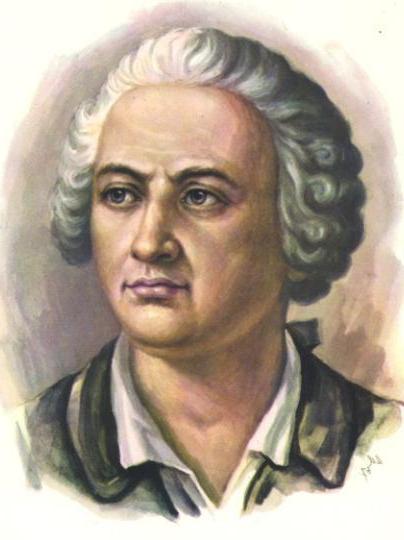
The scientific works of Mikhail Vasilyevich Lomonosov in the mid-17th century were close to modern program chemical and physical research. The scientist developed the theory of molecular kinetic heat, which in many ways surpassed the then ideas about the structure of matter. Lomonosov formulated many fundamental laws, among which was the law of thermodynamics. The scientist founded the science of glass. Mikhail Vasilyevich was the first to discover the fact that the planet Venus has an atmosphere. He became professor of chemistry in 1745, three years after receiving an equal title in physical science.
Dmitri Ivanovich Mendeleev
Outstanding chemist and physicist, Russian scientist Dmitry Ivanovich Mendeleev was born at the end of February 1834 in the city of Tobolsk. The first Russian chemist was the seventeenth child in the family of Ivan Pavlovich Mendeleev, the director of schools and gymnasiums in the Tobolsk region. Still preserved metric book with a record of the birth of Dmitry Mendeleev, where the names of the scientist and his parents appear on an old page.
Mendeleev was called the most a brilliant chemist 19th century, and this was the correct definition. Dmitry Ivanovich is the author of important discoveries in chemistry, meteorology, metrology, and physics. Mendeleev studied isomorphism. In 1860, the scientist discovered the critical temperature (boiling point) for all types of liquids.
In 1861, the scientist published the book “Organic Chemistry”. He examined gases and deduced correct formulas. Mendeleev designed the pycnometer. The great chemist became the author of many works on metrology. He researched coal and oil, and developed systems for irrigation of land.
It was Mendeleev who discovered one of the main natural axioms - periodic law chemical elements. We still use it now. He gave characteristics to everyone chemical elements, theoretically determining their properties, composition, dimensions and weight.
Alexander Mikhailovich Butlerov
A. M. Butlerov was born in September 1828 in the city of Chistopol (Kazan province). In 1844 he became a student at Kazan University, faculty natural sciences, after which he was left there to receive a professorship. Butlerov was interested in chemistry and created a theory chemical structure organic matter. Founder of the “Russian Chemists” school.
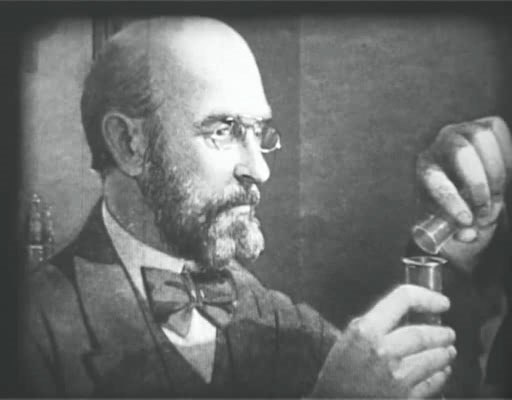
Markovnikov Vladimir Vasilievich
The list of “Russian chemists” undoubtedly includes another famous scientist. Vladimir Vasilievich Markovnikov, native Nizhny Novgorod province, was born on December 25, 1837. Chemical scientist in the field organic compounds and the author of the theory of the structure of oil and the chemical structure of matter in general. His works have played important role in the development of science. Markovnikov laid down the principles organic chemistry. He did a lot of research on molecular level, establishing certain patterns. Subsequently, these rules were named after their author.
At the end of the 60s of the 18th century, Vladimir Vasilyevich defended his dissertation on the mutual influence of atoms in chemical compounds. Soon after this, the scientist synthesized all the isomers of glutaric acid, and then cyclobutanedicarboxylic acid. Markovnikov discovered naphthenes (a class of organic compounds) in 1883.
For his discoveries he was awarded a gold medal in Paris.
Sergey Vasilievich Lebedev
S. V. Lebedev was born in November 1902 in Nizhny Novgorod. The future chemist received his education at the Warsaw Gymnasium. In 1895 he entered the Faculty of Physics and Mathematics of St. Petersburg University.
In the early 20s of the 19th century, the council National economy was announced international competition for the production of synthetic rubber. It was proposed not only to find alternative way its production, but also provide the result of the work - 2 kg of finished synthetic material. Raw materials for production process it also had to be cheap. Rubber needed to be obtained High Quality, no worse than natural, but cheaper than the latter.
Needless to say that Lebedev took part in the competition, in which he became the winner? He developed a special chemical composition rubber, accessible and cheap to everyone, winning himself the title of great scientist.
Nikolai Nikolaevich Semenov
Nikolai Semenov was born in 1896 in Saratov in the family of Elena and Nikolai Semenov. In 1913, Nikolai entered St. Petersburg University at the Department of Physics and Mathematics, where, under the guidance of the famous Russian physicist Joffe Abram became best student on the stream.
Nikolai Nikolaevich Semenov studied electric fields. He conducted research on the passage of electric current through gases, on the basis of which the theory of thermal breakdown of a dielectric was developed. He later put forward a theory about thermal explosion and combustion gas mixtures. According to this rule, the heat released when chemical reaction, may lead to an explosion if certain conditions are met.
Nikolai Nikolaevich Zinin
August 25, 1812 in the city of Shushi ( Nagorno-Karabakh) Nikolai Zinin, a future organic chemist, was born. Nikolai Nikolaevich graduated from the Faculty of Physics and Mathematics in St. Petersburg University. Became the first president of the Russian Chemical Society.
Zinin found a way to convert bitter almond oil into benzoin; this was written about in his first article in 1839. this work became the topic of his doctoral dissertation, which he defended in Russia.
Igor Vasilievich Kurchatov
On January 12, 1903, the “father” of the Soviet Union was born in the Ufa province atomic bomb. That's what they call the chief today scientific supervisor By nuclear development USSR Igor Vasilievich Kurchatov.
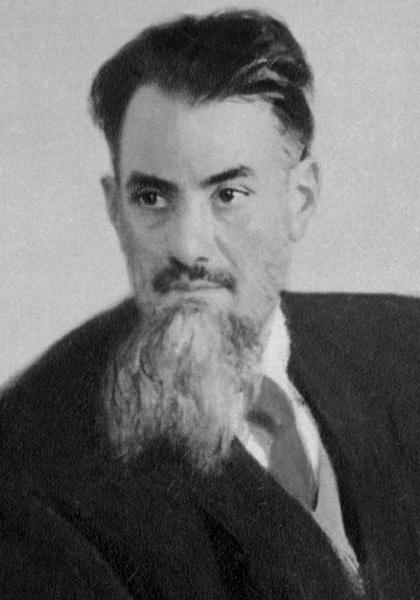
The scientist graduated from the Tauride Academy. V. I. Vernadsky. Under his leadership, the first nuclear power plant, Obninsk, was built, and the world’s first H-bomb, which was detonated on August 12, 1953. This was followed by the development of the RDS-202 thermonuclear explosive, the yield of which was 52,000 kt.
Kurchatov was one of the founders of the use of nuclear energy for peaceful purposes.
Famous Russian chemists then and now
Modern chemistry does not stand still. Scientists from all over the world are working on new discoveries every day. But we should not forget that the important foundations of this science were laid back in the 17th-19th centuries. Outstanding Russian chemists became important links in the subsequent chain of development of chemical sciences. Not all contemporaries use, for example, Markovnikov’s laws in their research. But the long-discovered periodic table, the principles of organic chemistry, the conditions critical temperature We still use liquids and other things. Russian chemists of yesteryear left an important mark on world history, and this fact is undeniable.
Russian biologists made a great contribution to world science. In this article we will talk about the main names that every person interested in animals and animals should know. flora. Russian biologists, whose biographies and achievements you will become acquainted with, inspire the younger generation to study this interesting science.
Ivan Petrovich Pavlov
This man in Soviet time needed no introduction. However, now not everyone can say that Pavlov Ivan Petrovich (life - 1849-1936) created the doctrine of higher nervous activity. In addition, he wrote a number of works on the physiology of digestion and blood circulation. He was the first Russian scientist to receive the Nobel Prize for his achievements in the field of digestive mechanisms.
Experiments on dogs
Many people remember his experiments on dogs. Countless cartoons and jokes have been created on this topic both in our country and abroad. Every time they talk about instincts, they remember Pavlov’s dog.
Pavlov Ivan Petrovich already in 1890 began conducting experiments on these animals. He used surgical techniques to bring out the ends of the dogs' esophagus. When the animal began to eat, food did not enter the stomach, but gastric juice was still released from the created fistula.
Over time they became more complicated. He trained the dogs to respond in a certain way to external stimuli, in particular to the bell, which notified about imminent feeding. Thanks to this, the animal produced food immediately after the bell. Even without seeing food, the dogs began to secrete gastric juice from their fistulas.
Features of Pavlov's technique
The peculiarity of Pavlov’s technique was that he associated with mental processes physiological activity. The results of many studies have confirmed the existence of this connection. Pavlov's works, describing the mechanism by which digestion occurs, became the impetus for the emergence of a new direction in science - the physiology of higher nervous activity. Ivan Petrovich devoted more than 35 years of his life to this area.
Origin, training
The future scientist was born in Ryazan on September 14, 1849. His ancestors on the maternal and paternal lines were clergymen who devoted their lives to the Russian Orthodox Church. Pavlov graduated from the Ryazan theological school in 1864, after which he entered the theological seminary of the same city, which he later spoke about with great warmth. When he was on last year, then I read Sechenov’s work “Reflexes of the Brain”. He turned his future life around.
Pavlov's achievements
He published his first work in 1923, and in 1926 the USSR government built a Biological Station near Leningrad. Here Pavlov began his research in the field of nervous activity and behavioral genetics great apes(anthropoids). In addition, he worked in psychiatric clinics.
It should be noted that Pavlov made almost the largest contribution in history in the field of knowledge of how the brain works. Usage scientific methods This scientist allowed science to understand a lot about mental illness, as well as to outline ways to treat them. The academician, with the support of the USSR government, had access to the resources necessary for research. This allowed him to make revolutionary discoveries.
Ilya Ilyich Mechnikov
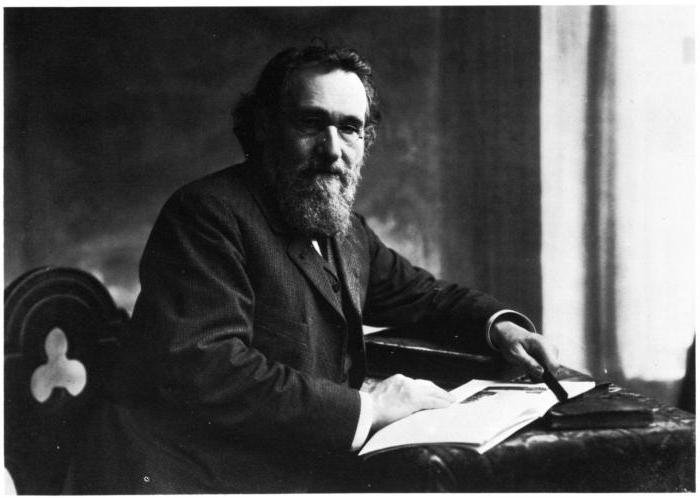
Great Russian biologists of world renown are Ivan Petrovich Pavlov and Ilya Ilyich Mechnikov. We have already talked about the first of them. Let us introduce the reader to the second one.
Mechnikov Ilya Ilyich (years of life - 1845-1916) - a famous Russian microbiologist, as well as a pathologist. In 1908 he was awarded the Nobel Prize in Medicine and Physiology (jointly with P. Ehrlich). Mechnikov received this prestigious award for his achievements in the field of the nature of immunity.
The future scientist was born in a village near Kharkov on May 3, 1845. In 1864, Ilya Ilyich Mechnikov graduated from Kharkov University, after which he interned at the departments of universities in Munich, Göttingen and Giessen. Mechnikov also traveled to Italy, where he studied embryology. He defended his doctoral dissertation in 1868. From 1870 to 1882 the scientist worked in Odessa. Here, at Novorossiysk University, he was a professor of zoology. The scientist successfully combined with scientific work teaching activities. In 1886, together with N.F. Gamaleya, he organized a bacteriological station, the first in Russia. The scientist moved to Paris in 1887, and a year later, at the invitation of L. Pasteur, he began working at his institute, where he headed the laboratory. Since 1905, Ilya Ilyich Mechnikov was the deputy director of this educational institution.
Ilya Ilyich’s first works were written on the topic of zoology of invertebrates (coelenterates and sponges), as well as evolutionary embryology. He belongs to the theory of phagocytella (the origin multicellular organisms). The scientist discovered the phenomenon of phagocytosis, which is the absorption of living cells and particles single-celled organisms or phagocytes - special cells, which include, for example, some types of leukocytes. Based on this theory, Mechnikov developed another - comparative pathology of inflammation.
There are many works written by Ilya Ilyich on bacteriology. He conducted experiments on himself, as a result of which he proved that he was the causative agent of Asian cholera. Ilya Ilyich died on July 2, 1916 in Paris.
What other Russian biologists are worthy of attention? We invite you to meet one more of them.
Alexander Onufrievich Kovalevsky
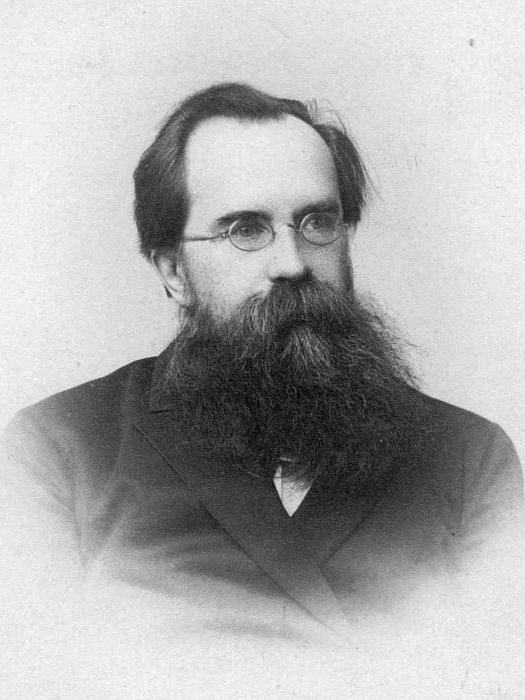
This is another great Russian scientist whose name cannot be ignored. Kovalevsky was a zoologist, worked in Imperial Academy sciences as an ordinary academician.
Kovalevsky Alexander Onufrievich was born in 1840, November 19. He received elementary education at home, and then continued his studies in the corps of railway engineers. Alexander Onufrievich left there in 1859 and entered St. Petersburg University (department of natural sciences). In the period from 1860 to 1862, Kovalevsky studied with Bronn, Carius and Bunsen in Heidelberg, and then with Leydig, Quenstätt, Luschka and Mohl in Tübingen.
In 1862, Kovalevsky Alexander Onufrievich completed his studies at St. Petersburg University, followed by the defense of his master's and doctoral dissertations. In 1868, Kovalevsky became a professor of zoology. At this time he worked at Kazan University.
The period from 1870 to 1873 included a trip to Algeria and the Red Sea with scientific purpose. In 1890, after another trip abroad, he was elected a member of the Imperial Academy of Sciences, and also received the title of ordinary academician. In 1891, he took the chair of histology at his native St. Petersburg University.
Most of this scientist's work is devoted to embryology, especially invertebrates. His research in the 1860s discovered the germ layers in these organisms. Kovalevsky's research in last years were devoted mainly to the definition of phagocytic and excretory organs in invertebrates.
Nikolai Ivanovich Vavilov
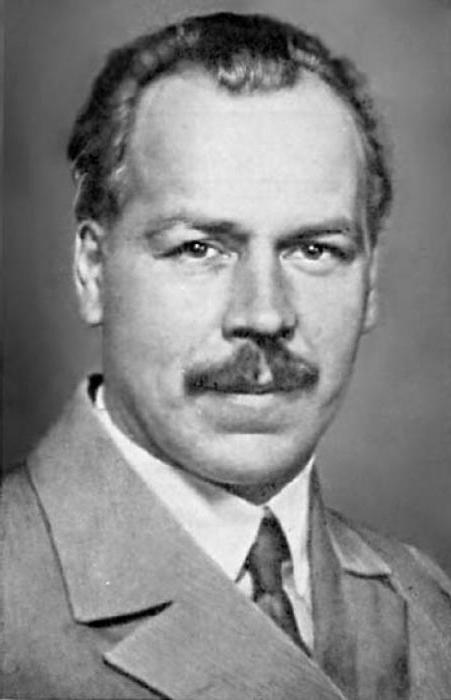
This man owns the doctrine of the immunity of plants, as well as their origin from world centers. Nikolai Ivanovich Vavilov discovered the law of hereditary changes in organisms and this man made a great contribution to the study. He created the most impressive collection of seeds of various cultivated plants in the world. This is another scientist whose name has glorified our country.
Origin of Vavilov
Vavilov Nikolai Ivanovich was born in Moscow on November 25, 1887 in the family of a merchant of the second guild and public figure Vavilov Ivan Ilyich. This man came from a peasant background. Before the revolution of 1917, he worked as director of the Udalov and Vavilov company, which was engaged in manufacturing. Postnikova Alexandra Mikhailovna, the scientist’s mother, was from the family of an artist-carver. In total, Ivan Ilyich’s family had 7 children, but three of them died in childhood.
Study and teaching activities
Nikolai Ivanovich received his primary education at a commercial school, and then began to study at the Moscow Agricultural Institute. He graduated in 1911, after which he remained to work at the institute in the department of private agriculture. Vavilov in 1917 began to lecture at Saratov University, and since 1921 he worked in Petrograd. All-Union Institute Nikolai Ivanovich headed the plant growing department until 1940. Based on research conducted in 1919-20, he described all cultivated plants of the Volga and Trans-Volga regions.
Vavilov's expeditions
Nikolai Vavilov led expeditions to study vegetation for 20 years (from 1920 to 1940) Central Asia, Mediterranean, etc. With one of them he visited Afghanistan in 1924. The obtained materials allowed the scientist to determine the origin and distribution of cultivated plants. This made it much easier further work botanists and breeders. The collection of plants collected by the researcher includes more than 300 thousand specimens. It is stored at VIR.
last years of life
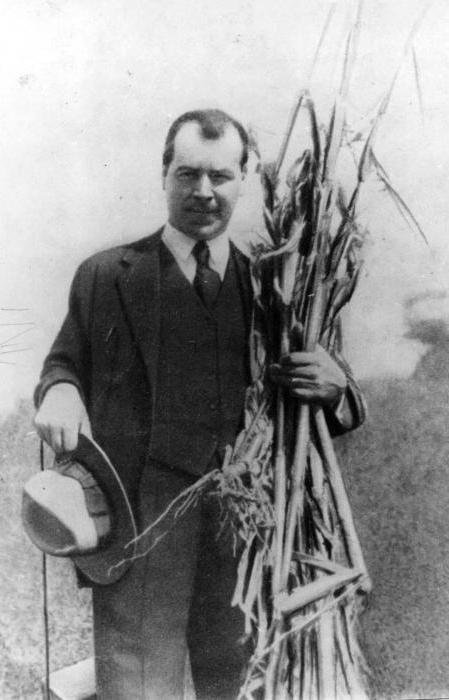
Vavilov received the Lenin Prize in 1926 for his work on immunity, the origin cultural species plants, as well as for the law homologous series, opened by him. He received a number of awards and several medals. However, a campaign launched against the scientist was launched by his student T.D. Lysenko and supported by party ideologists. It was directed against research in the field of genetics. In 1940, as a result of this, Vavilov’s scientific activities were terminated. He was accused of sabotage and arrested. The great scientist was destined hard fate in recent years. He died in Saratov prison from hunger in 1943.
Rehabilitation of a scientist
The investigation against him continued for 11 months. During this time, Vavilov was summoned for interrogation more than 400 times. After his death, Nikolai Ivanovich was even denied a separate grave. He was buried along with other prisoners. Vavilov was rehabilitated in 1955, all charges of activities directed against the revolution were dropped. His name was finally restored to the USSR Academy of Sciences.
Alexander Leonidovich Vereshchaka
Modern Russian biologists submit big hopes. In particular, A.L. Vereshchak, who owns many achievements. He was born in Khimki on July 16, 1965. Vereshchak is a Russian oceanologist, professor, doctor and corresponding member of the Russian Academy of Sciences.
In 1987, he completed his studies at Moscow State University, Faculty of Biology. In 1990, the scientist became a doctor, in 1999 - a professor at MIIGAIK, and since 2007 he has headed a laboratory belonging to the Institute of Oceanology of the Russian Academy of Sciences, located in Moscow.
Vereshchaka Alexander Leonidovich is a specialist in the field of oceanology and geoecology. He owns about 100 scientific papers. His main achievements are related to the use modern methods in the field of oceanology and geoecology, such as the deep-sea manned vehicles "Mir" (more than 20 dives, 11 expeditions).
Vereshchaka is the creator of a model of a hydrothermal system (three-dimensional). He developed the concept of a boundary ecosystem (benthopeligal), inhabited by a specific fauna and associated with the bottom layer. In collaboration with colleagues from other countries, he created a method for determining the role of marine nano- and microbiota (prokaryotes, archaea and eukaryotes) using modern achievements molecular genetics. He is responsible for the discovery and description of two families of shrimp, as well as more than 50 species and genera of crustaceans.
Rosenberg Gennady Samuilovich
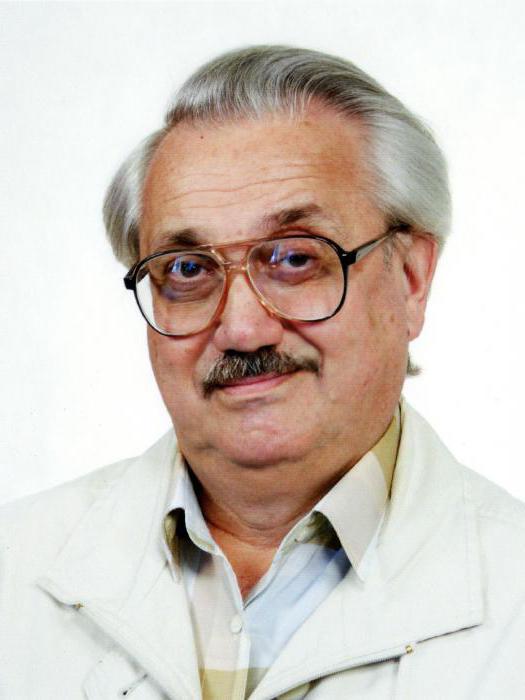
The scientist was born in Ufa in 1949. He began his career as an engineer, but soon began to head a laboratory located at the Institute of Biology Bashkir branch Academy of Sciences. Gennady Samuilovich Rosenberg moved to Tolyatti in 1987, where he worked as chief researcher at the Institute of Ecology of the Volga Basin. In 1991, the scientist headed this institute.
He is responsible for the development of methods for analyzing the dynamics and structure of ecosystems. He also created a system for analyzing the ecology of large regions.
Ilyin Yuri Viktorovich
This scientist was born in Asbest on December 21, 1941. He is molecular biologist, and since 1992, an academician of the Russian Academy of Sciences. His achievements are great, so the scientist deserves more detailed story about him.
Yuri Viktorovich Ilyin specializes in molecular genetics And molecular biology. In 1976, the scientist cloned dispersed mobile genes, which are a new type of eukaryotic genes. The significance of this discovery was very great. These were the first mobile genes to be discovered in animals. After this, the scientist began to study mobile elements of eukaryotes. He created a theory about the role of dispersed mobile genes in evolution, mutagenesis and carcinogenesis.
Zinaida Sergeevna Donets
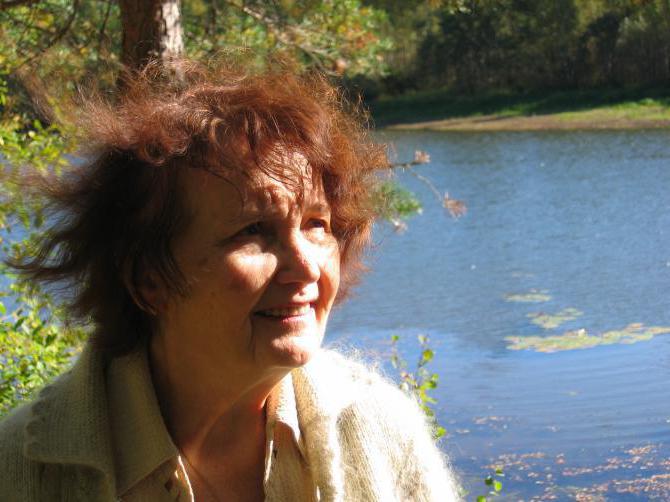
The great biologists of Russia are not only men. It is worth telling about such a scientist as Zinaida Sergeevna Donets. She is a Doctor of Science, professor of zoology and ecology at Yaroslavl State University.
Of course, there are other biological scientists in our country worthy of attention. We only talked about major researchers and achievements that are useful to remember.

